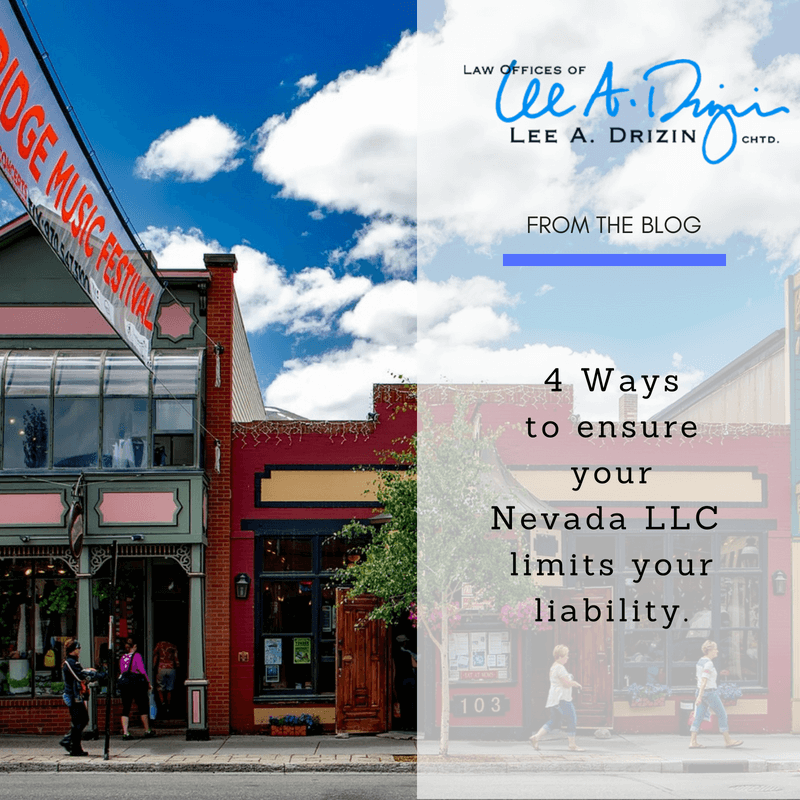4 Ways to Ensure Your Nevada LLC Limits Your Liability

In several recent cases before the United States District Court for the District of Nevada, the court applied the alter ego doctrine to limited liability companies despite recognizing that the Nevada Supreme Court has not issued an opinion that a limited liability company may be pierced under this theory. Accordingly, members should be aware of the factors the court considers whether to pierce the veil and should not rely upon the absence of an opinion on this issue by the Nevada Supreme Court.
The fact that you are the sole member of the limited liability company or serve as the manager is generally not sufficient, in and of itself, to result in the piercing of the company veil. In order to prevent piercing of the company veil, you should comply with the following:
1. Absence of company formalities. If the members have executed an Operating Agreement, the terms of the Agreement should be followed regarding the actions of the Company. Are annual meetings required? Are certain decisions made in accordance with any special provisions in the Operating Agreement? NRS 86 (which governs limited liability companies) does not require an Operating Agreement; however, under such circumstances, steps should be taken to document the actions taken by the Manager/Members regarding significant actions of the Company. This can be accomplished by the execution of written consents or minutes reflecting meetings of the members and/or managers as appropriate.
2. Undercapitalization. LLCs should properly capitalized to cover its expenses. An accountant should review the initial funding to make certain it is sufficient to help defend any future piercing claims. If your limited liability company does not have sufficient funds to pay debts as they are due, a court may conclude the Company has been intentionally undercapitalized and find the entity should be discarded to prevent a fraud or a manifest injustice.
3. Absence of company records. If it talks like a duck, it must also walk like a duck. In other words, the entity must be properly document the conduct of its business. The LLC should always have a separate bank account and adequate records to document the expenditures. The Company should also maintain appropriate records to reflect the entity’s income and expenses and the filing and payment of the Company’s taxes.
4. Commingling of funds. Never commingle. Do not put the LLC funds into your personal bank account or pay personal expenses from your LLC bank account. If the Company is reimbursing a member for expenses, make sure that they are properly documented. Don’t mix bank accounts between an LLC and other businesses.
The answers contained herein are not basis for individual legal advice. You should not rely on them for your specific case and your situation should be reviewed with an attorney. Therefore, it is important to seek help from an experienced lawyer for sound and proper legal advice in the subject who is licensed in your jurisdiction. Understanding the factors a court will consider in determining whether to pierce the LLC veil is an important first step to ensuring the entity conducts its activities appropriately.
For more than 30 years, Attorney Lee A. Drizin has practiced in the areas of estate planning, probate, trusts, guardianship and real estate matters representing clients throughout the state of Nevada.
Drizin Law is providing this information for educational purposes only. It should not be construed as legal advice or a legal opinion as to any specific facts or circumstances. This information is based on general principles of Nevada law at the time it was created and you should be aware laws frequently change. Moreover, the laws affecting you may differ depending on the circumstances. You should consult with a qualified attorney in your own state or jurisdiction concerning your particular situation. Review of this information does not create an attorney-client relationship.







